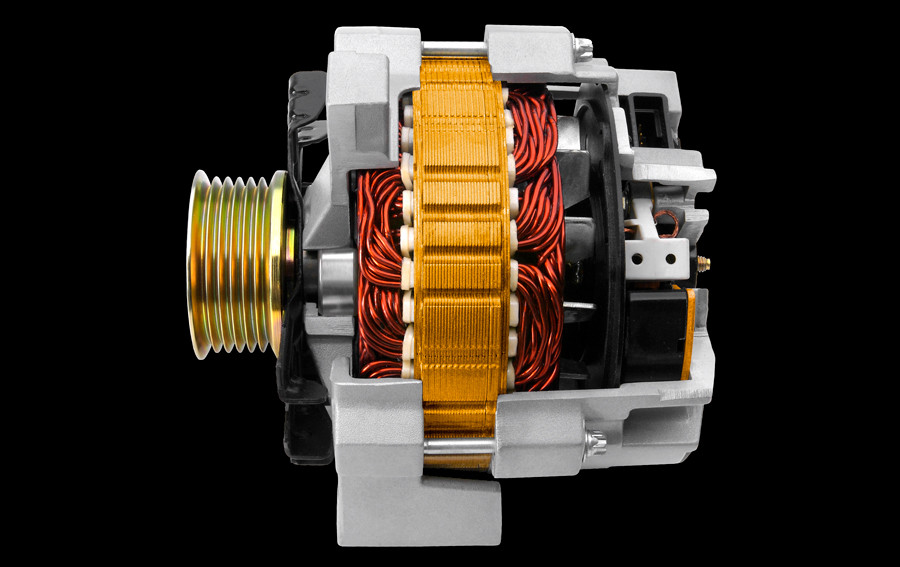Where Can I Get My AC Fixed In My Car?
Is your car’s AC blowing hot air? Discover “where can I get my AC fixed in my car” with CARDIAGTECH.NET! Our guide offers solutions, expert advice, and how our tools can help. Keep cool with us!
1. Understanding Your Car’s AC System: A Quick Overview
Before diving into “where can I get my AC fixed in my car?”, let’s quickly review how your car’s air conditioning system operates. Officially known as the HVAC (Heating, Ventilation, and Air Conditioning) system, it does more than just pump cold air into your vehicle. It’s a complex system that transforms refrigerant from a gas to a liquid and back again to cool the air effectively. Understanding this process is crucial when determining the best course of action for AC repair.
- The Compressor: Connected to the engine’s crankshaft via a belt, the compressor uses pistons to compress refrigerant gas, which generates heat and high pressure.
- The Condenser: The heated, pressurized gas moves into the condenser, which cools the gas and converts it into liquid form.
- The Dryer: The liquid refrigerant then passes through a dryer, ensuring no gas remains as it flows to a control device such as a thermal expansion valve or an orifice tube.
- The Evaporator: The liquid refrigerant moves through the control device to the evaporator, where it absorbs heat from inside the car, changing it back into a gas.
- The Fan: A fan blows air, either from the outside or recirculated from inside the car, through the evaporator, cooling the air before it enters the cabin.
- The Cycle Repeats: The gas returns to the compressor from the evaporator, and the entire cooling process begins again.
This intricate process demonstrates why maintaining a contaminant-free system with the correct amount of refrigerant is essential for optimal AC performance. If you’re looking for “where can I get my AC fixed in my car?” it’s important to find a service that understands and can address each of these components.
2. Common AC Problems and Their Solutions
When searching “where can I get my AC fixed in my car”, knowing the potential issues can help you communicate effectively with technicians and understand repair costs. Here are some common problems:
- Refrigerant Leaks: AC systems operate under high pressure, requiring tightly sealed hoses and components. Small refrigerant leaks (less than an ounce per year) are normal, but significant leaks can cause problems. Leaks often result from pressure, heat, and age affecting the sealing materials.
- Faulty Compressor: Symptoms of a failing compressor include a lack of cool air, unusual noises, and fluid leaks. Proper handling and specialized tools are necessary for compressor repair or replacement.
- Clogged Cabin Air Filter: Insufficient airflow and the presence of dust, pollen, and pollutants entering through the AC ducts indicate a clogged cabin air filter.
2.1. Addressing Refrigerant Leaks
| Leak Location | Description | Repair Cost |
|---|---|---|
| O-rings | Inexpensive to replace, but labor costs can increase the overall price due to the need for system depressurization and evacuation. | $50 – $200 |
| Compressor | Failure due to prolonged operation with low refrigerant levels requires compressor replacement, which is more expensive than O-ring replacement. | $400 – $1200 |
2.2. Fixing a Faulty Compressor
The compressor is the heart of your car’s AC system, and when it fails, you’ll likely notice a significant decrease in cooling performance. Finding “where can I get my AC fixed in my car” becomes crucial at this point.
Symptoms of a Faulty Compressor:
- No cool air coming from the vents
- Unusual noises when the AC is turned on
- Visible fluid leaks near the compressor
Repair and Replacement:
- Proper Handling: Compressor repair or replacement requires specialized tools and a trained technician.
- Labor Intensive: The process can be labor-intensive, adding to the overall cost.
2.3. Replacing a Dirty Cabin Air Filter
A dirty or clogged cabin air filter can significantly reduce the efficiency of your AC system. This is often an easy fix, making it a good starting point when troubleshooting AC issues.
Signs of a Clogged Cabin Air Filter:
- Reduced airflow from AC vents
- Dust, pollen, and pollutants entering the cabin
- Unpleasant odors when the AC is turned on
Replacement Guidelines:
- Frequency: Replace the cabin air filter every 15,000 to 30,000 miles, or as recommended in your vehicle’s owner’s manual.
- DIY Option: In many cases, replacing the cabin air filter is a quick and easy DIY task.
- Professional Service: If you prefer, a local service center can handle the replacement for you.
.jpg)
Replacing a car cabin air filter to ensure cool and clean air inside the vehicle.
3. Finding the Right AC Repair Service: What to Look For
When searching “where can I get my AC fixed in my car”, consider these factors to ensure you choose a reputable and effective service:
- Technician Experience: Look for certified technicians with specific experience in automotive AC systems.
- Diagnostic Tools: Ensure the service center uses modern diagnostic tools to accurately identify the problem.
- Comprehensive Service: The service should include inspection of all AC components, not just a quick refrigerant recharge.
- Warranty: A good warranty on parts and labor provides peace of mind.
- Customer Reviews: Check online reviews to gauge customer satisfaction with the service.
4. AC Recharge: What It Involves and When You Need It
An AC recharge involves removing old refrigerant and replacing it with new refrigerant. This is a common service, but it’s essential to understand when it’s necessary and what the process entails.
When is an AC Recharge Needed?
- AC is blowing warm air
- Reduced cooling efficiency
- AC system hasn’t been serviced in a long time
The Recharge Process:
- Inspection: A technician will inspect the AC system for leaks and damage.
- Evacuation: The old refrigerant is removed from the system.
- Vacuum Test: A vacuum test is performed to check for leaks.
- Recharge: The system is recharged with the correct amount of refrigerant, as specified by the vehicle manufacturer.
5. Cost Factors: Understanding the Price of AC Repair
The cost of AC repair can vary widely depending on the issue and the service provider. Here are some factors that influence the price:
- Type of Repair: Simple fixes like replacing a cabin air filter are inexpensive, while major repairs like compressor replacement are more costly.
- Parts Costs: The price of replacement parts can vary depending on the make and model of your vehicle.
- Labor Costs: Labor rates differ among service centers.
- Refrigerant Type: The type of refrigerant your car uses can affect the cost of a recharge.
6. DIY vs. Professional Repair: Making the Right Choice
Deciding whether to tackle AC repair yourself or hire a professional depends on your skills, tools, and the complexity of the problem.
DIY AC Repair:
- Pros: Cost savings, convenience
- Cons: Requires technical knowledge, specialized tools, potential for mistakes
Professional AC Repair:
- Pros: Expertise, proper tools, warranty
- Cons: Higher cost
For simple tasks like replacing the cabin air filter, DIY can be a good option. However, for more complex issues like refrigerant leaks or compressor problems, professional service is recommended.
7. Preventative Maintenance: Keeping Your AC in Top Shape
Regular maintenance can prevent many common AC problems and extend the life of your system. Here are some tips:
- Regular Inspections: Have your AC system inspected annually by a qualified technician.
- Cabin Air Filter Replacement: Replace the cabin air filter as recommended in your vehicle’s owner’s manual.
- Refrigerant Recharge: Periodically recharge the AC system to maintain optimal performance.
- Leak Checks: Address any refrigerant leaks promptly.
8. Choosing CARDIAGTECH.NET for Your Automotive Needs
When you’re pondering “where can I get my AC fixed in my car?”, remember that CARDIAGTECH.NET stands out as a premier provider of automotive diagnostic tools and equipment. We equip technicians and DIY enthusiasts alike with the tools needed to accurately diagnose and efficiently repair car AC systems.
8.1. Superior Diagnostic Tools
At CARDIAGTECH.NET, we offer a range of diagnostic tools that are essential for pinpointing AC system issues. Our tools include:
- Refrigerant Leak Detectors: Quickly identify and locate refrigerant leaks to prevent further system damage.
- Manifold Gauge Sets: Measure pressure within the AC system to ensure proper operation and diagnose issues.
- Vacuum Pumps: Essential for removing moisture and air from the AC system before recharging.
- UV Dye Kits: Use ultraviolet light to detect even the smallest refrigerant leaks, ensuring a thorough inspection.
These tools are designed to help you or your technician accurately assess the condition of your AC system, leading to more effective repairs.
8.2. Benefits of Using CARDIAGTECH.NET Tools
- Accuracy: Our diagnostic tools provide precise readings, helping you accurately diagnose AC problems.
- Efficiency: With the right tools, you can quickly identify and address issues, saving time and money.
- Reliability: CARDIAGTECH.NET tools are built to last, ensuring years of reliable service.
- Comprehensive Solutions: We offer a wide range of tools to cover all aspects of AC system diagnostics and repair.
8.3. Why Choose CARDIAGTECH.NET?
Choosing CARDIAGTECH.NET means investing in quality, reliability, and expertise. Here’s why our customers trust us:
- Expertise: We understand the intricacies of automotive AC systems and provide tools that meet the highest standards.
- Quality: Our products are rigorously tested to ensure they meet or exceed industry standards.
- Customer Support: Our team is available to answer your questions and provide technical support.
- Comprehensive Range: From leak detectors to vacuum pumps, we have everything you need for AC system diagnostics and repair.
9. Real-World Scenarios: How Our Tools Make a Difference
Let’s explore some real-world scenarios where CARDIAGTECH.NET tools have made a significant difference in AC repair:
Scenario 1: Detecting a Subtle Refrigerant Leak
- Problem: A car AC system was blowing slightly warm air, but no obvious leaks were visible.
- Solution: Using our UV Dye Kit, the technician quickly located a small leak in the condenser.
- Outcome: The leak was repaired, and the AC system was recharged, restoring optimal cooling performance.
Scenario 2: Diagnosing a Faulty Compressor
- Problem: A car AC system was making unusual noises, and the air was not cooling at all.
- Solution: Using our Manifold Gauge Set, the technician identified that the compressor was not building pressure.
- Outcome: The compressor was replaced, and the AC system was restored to full functionality.
Scenario 3: Ensuring a Leak-Free Recharge
- Problem: After recharging an AC system, the technician wanted to ensure there were no leaks.
- Solution: Using our Refrigerant Leak Detector, the technician verified that the system was completely sealed.
- Outcome: The customer was confident that the AC system would perform reliably.
10. Frequently Asked Questions (FAQs) About Car AC Repair
- How often should I get my car AC serviced?
- It’s recommended to have your AC system inspected annually.
- How do I know if my car AC needs a recharge?
- If your AC is blowing warm air or not cooling efficiently, it likely needs a recharge.
- Can I recharge my car AC myself?
- While DIY recharge kits are available, professional service is recommended for safety and accuracy.
- What are the signs of a refrigerant leak?
- Signs include reduced cooling efficiency, oily residue near AC components, and a hissing sound.
- How much does it cost to recharge a car AC?
- The cost varies depending on the refrigerant type and service provider, but typically ranges from $100 to $300.
- What is a cabin air filter, and why is it important?
- The cabin air filter cleans the air entering the car’s cabin, removing dust, pollen, and pollutants.
- How often should I replace my cabin air filter?
- Replace it every 15,000 to 30,000 miles, or as recommended in your vehicle’s owner’s manual.
- What are the symptoms of a failing AC compressor?
- Symptoms include a lack of cool air, unusual noises, and fluid leaks near the compressor.
- Can a dirty cabin air filter affect AC performance?
- Yes, a dirty filter can restrict airflow and reduce cooling efficiency.
- Where can I find reliable AC repair services?
- Look for certified technicians, check online reviews, and ensure the service center offers a warranty.
11. How CARDIAGTECH.NET Addresses Your Repair Challenges
At CARDIAGTECH.NET, we understand the challenges technicians and car owners face when dealing with AC repairs. Our tools and equipment are designed to address these specific issues, helping you work more efficiently and effectively.
11.1. Overcoming Physical Demands
- Challenge: AC repair work can be physically demanding, requiring you to work in tight spaces and handle heavy components.
- CARDIAGTECH.NET Solution: Our ergonomic tool designs and lightweight materials reduce strain and fatigue, allowing you to work comfortably and efficiently.
11.2. Handling Dirty and Hazardous Materials
- Challenge: AC repair often involves exposure to oils, greases, and hazardous chemicals.
- CARDIAGTECH.NET Solution: Our tools are designed for easy cleaning and maintenance, reducing exposure to harmful substances and ensuring a safe working environment.
11.3. Keeping Up with New Technologies
- Challenge: The automotive industry is constantly evolving, with new AC technologies and systems being introduced regularly.
- CARDIAGTECH.NET Solution: We continuously update our product line to include the latest diagnostic tools and equipment, ensuring you stay ahead of the curve.
11.4. Managing Time Constraints
- Challenge: Technicians often face pressure to complete repairs quickly and efficiently.
- CARDIAGTECH.NET Solution: Our tools are designed for speed and accuracy, helping you diagnose and repair AC issues in less time.
11.5. Staying Competitive
- Challenge: The automotive repair industry is highly competitive, requiring you to offer high-quality services at competitive prices.
- CARDIAGTECH.NET Solution: By using our advanced diagnostic tools, you can provide accurate and reliable AC repairs, enhancing your reputation and attracting more customers.
12. Contact CARDIAGTECH.NET for Expert Advice and Support
Still wondering, “where can I get my AC fixed in my car?” Let CARDIAGTECH.NET help! Don’t let a faulty AC system disrupt your comfort and safety. Contact us today for expert advice and support. Our team is ready to assist you with all your automotive diagnostic tool needs.
- Address: 276 Reock St, City of Orange, NJ 07050, United States
- WhatsApp: +1 (641) 206-8880
- Website: CARDIAGTECH.NET
Contact CARDIAGTECH.NET today to discover how our tools can enhance your AC repair capabilities.
13. Conclusion: Stay Cool with CARDIAGTECH.NET
Finding “where can I get my AC fixed in my car” doesn’t have to be a stressful experience. With the right knowledge and the right tools, you can ensure your AC system is running efficiently and effectively. Trust CARDIAGTECH.NET to provide you with the diagnostic tools and equipment you need to stay cool on the road.





